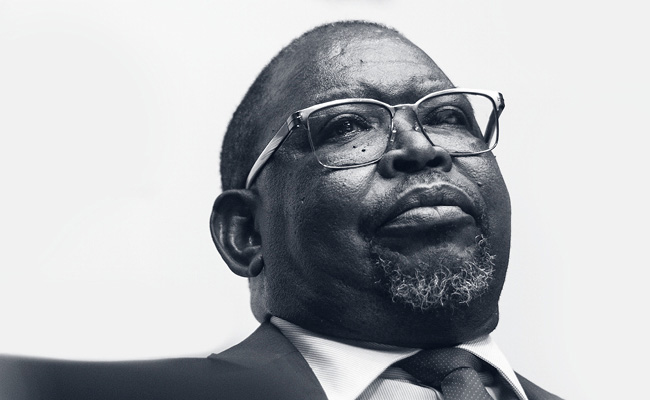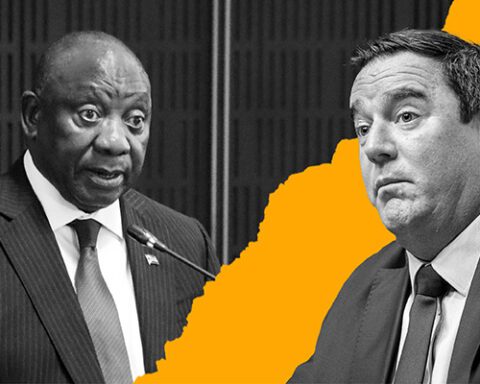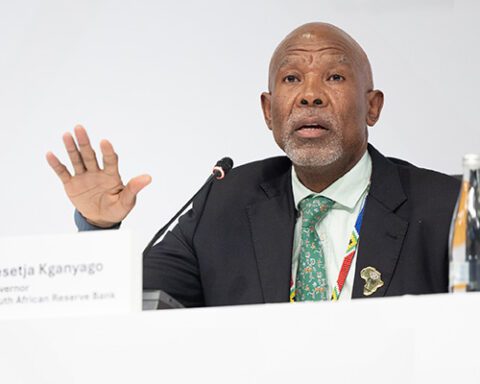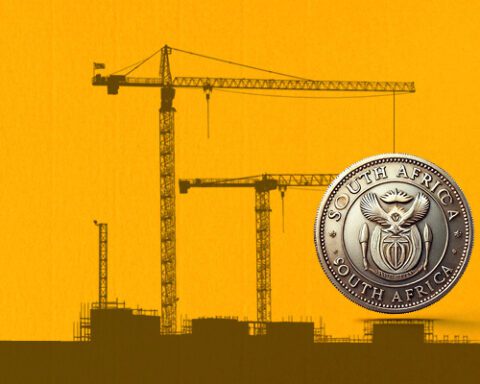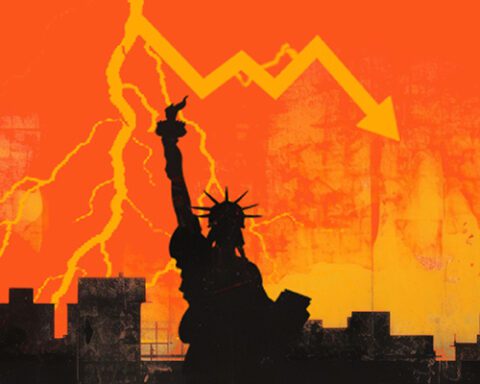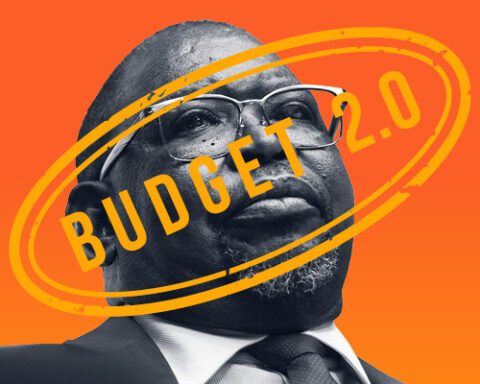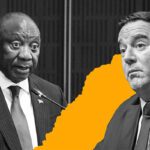Before Enoch Godongwana even steps up to the podium to present budget 2.0 on Wednesday, the 65-year-old finance minister and his National Treasury will have already sealed South Africa’s fate.
At stake is the credibility of the government of national unity (GNU) and its ability to reach consensus on the main driver of South Africa’s economic agenda: a budget that keeps the state operational and allows businesses to plan.
“One of the key things we are looking for is the government’s ability to pass a budget,” Xhanti Payi, an economist and senior manager at PwC, tells Currency. “At least that shows there is some policy agreement and some stability.”
Godongwana presents his budget again on March 12 after wrong-footing cabinet and the nation with a surprise two percentage point VAT hike (from 15% to 17%). It was too rich for parties like the DA, which vetoed the plan.
This debacle happened as Godongwana kept the scale of the increase hidden until February 19, briefing ministers just hours before his 2pm speech. Fingers crossed, the behind-the-scenes politicking will have worked better this time.
Nedbank senior economist Isaac Matshego says the budget is likely to pass on Wednesday, as the GNU would want to avoid another embarrassment. “After all the consultations, I don’t expect that it is going to be rejected by any party,” he adds.
The question is, what will have been jettisoned in the horse-trading?
Insiders believe Godongwana will likely still propose a VAT hike, but only from 15% to 15.5%, much lower than he’d initially proposed.
Sources Currency spoke to confirmed as much, underscoring reports from Bloomberg, which cited two unidentified sources saying that the cabinet is now likely to support a Treasury proposal for a 0.5 percentage point VAT hike.
The DA is the stickler in the talks, since no budget can be passed in parliament without its say-so, unless the ANC cosies up to the MK Party.
“We will not, under any circumstances, vote in favour of a budget that does not speak to growth and jobs,” said DA leader John Steenhuisen this week. “If we don’t face the hard realities facing the country, we’ll be stuck in the endless cycle of raising taxes and taking on more debt, which we can no longer afford.”
While the DA has been clear it will not support the two percentage point VAT hike, a lower 0.5 percentage point increase might fly, but only as a quid pro quo for Treasury putting in place “pro-growth proposals”.
In particular, the DA believes the government needs to concession out the Cape Town and Richards Bay ports to the private sector, and agree to a “comprehensive spending review” to weed out wasteful spending.
Further borrowing is out of the question, says Payi, as that would threaten South Africa’s credit rating, since its debt-to-GDP ratio is heading towards 80%. What’s really needed is the postponement of projects until the government has stabilised its finances or revenue has increased, he adds.
Matshego expects a VAT increase of between 0.5 and one percentage point, and a possible hike to the fuel levy. But he says Treasury may opt to raise social grants by less than 6% – which was the proposal in the initial budget – while increasing the number of items in the zero-rated VAT basket.
Still, this would only get the government to about R30bn of the R58bn that the two percentage point VAT hike would have delivered. The rest, says Matshego, will have to come from spending cuts.
The Elon option
Analysts believe that if Treasury agrees to the DA’s “spending review” – pretty much the local equivalent of Elon Musk’s department of government efficiency (Doge) – this would be hugely helpful to the country’s economy.
Alex Malapane, an independent analyst, is one who believes South Africa needs the equivalent to Doge, which should prioritise “redirecting funds toward productive economic sectors that create jobs rather than sustaining a bloated bureaucracy”.
As it is, there is excessive duplication across national and provincial departments, along with too many state-owned entities where overpaid CEOs spend more on salaries than pro-growth projects.
“The government is operating in a very disorganised manner,” says Malapane, who adds that the first phase of South Africa’s Doge would be painful. “That is not going to be a one-night or a two-week process; it will be a long process.”
Insiders, however, tell Currency there is a certain discomfort in comparisons between this “spending review” and Doge, given that Musk’s department has operated haphazardly, spread misinformation, and messed up by firing key stay.
But there’s little dispute that South Africa deeply needs such a review.
Malapane says he would start with cabinet: South Africa has 32 ministers and 43 deputy ministers – a bureaucracy larger than that of Brazil, which has 38 ministers, for an economy almost six times South Africa’s size and with three and a half times its population.
Cutting bodyguards, and blue light brigades are also low-hanging fruit.
The bigger task, however, would be overhauling the state entirely to ensure it is managed by competent civil servants rather than politically connected cadres, who let expensive consultants run their departments instead.
Any such “spending review” would also likely lead to the ANC having to jettison holy cows of its economic policy which are unaffordable, such as the National Health Insurance, which experts believe will cost more than R900bn every year.
Spending political capital
The question is, will a government in which the ANC is the largest partner be willing to agree to slash expenses to this extent, if it is forced to abandon long-held plans which might be unaffordable?
The ANC has promised spending cuts before, but the party has been held hostage by its labour and communist allies, as well as a state machinery that has delivered more for the party’s corrupt cadre deployees than it has delivered for taxpayers.
South Africa’s civil servants are among the world’s best paid relative to the size of the country’s GDP, thanks to a series of above-inflation pay increases. Last year, the Centre for Risk Analysis said the wage bill of R721bn, equal to 10.5% of GDP, is third highest of all countries it surveyed after only Iceland and Denmark.
In this context, the ANC pragmatists know that hiking VAT, without looking internally for savings, looks lazy and punitive to the taxpayers keeping the government afloat.
This is particularly since tax hikes are generally not that effective after a certain point, according to South African Revenue Service commissioner Edward Kieswetter, who has argued that improving tax compliance and recovering uncollected taxes is a better option.
History is on his side: back in 2018, when then finance minister Malusi Gigaba hiked VAT from 14% to 15%, VAT collections fell way short of projections.
Squeezing taxpayers for more, either through personal taxes or corporate taxes, will “ironically result in collecting less taxes”, says Thomas Lobban, a director at Ibex Consulting, a division of tax consulting firm Latita Africa.
Lobban advocates for more focus on pro-growth measures, such as assisting new businesses grow, while constricting government expenditure “without breaking things”.
After the budget interruptus in mid-February, all eyes will be on Godongwana on Wednesday to see how he walks this line between growth and tax.
Either way, everyone agrees that South Africa cannot afford another postponement.
“It goes beyond just the difficulties that would be facing all the departments and the local governments that have to make payments,” says Lobban. “The only thing worse than a slow, bickering government is one that has no idea what to do next – that would be profoundly damaging for South Africa.”
Top image: Finance minister Enoch Godongwana. Picture: Gallo Images/Brenton Geach
Sign up to Currency’s weekly newsletters to receive your own bulletin of weekday news and weekend treats. Register here.
